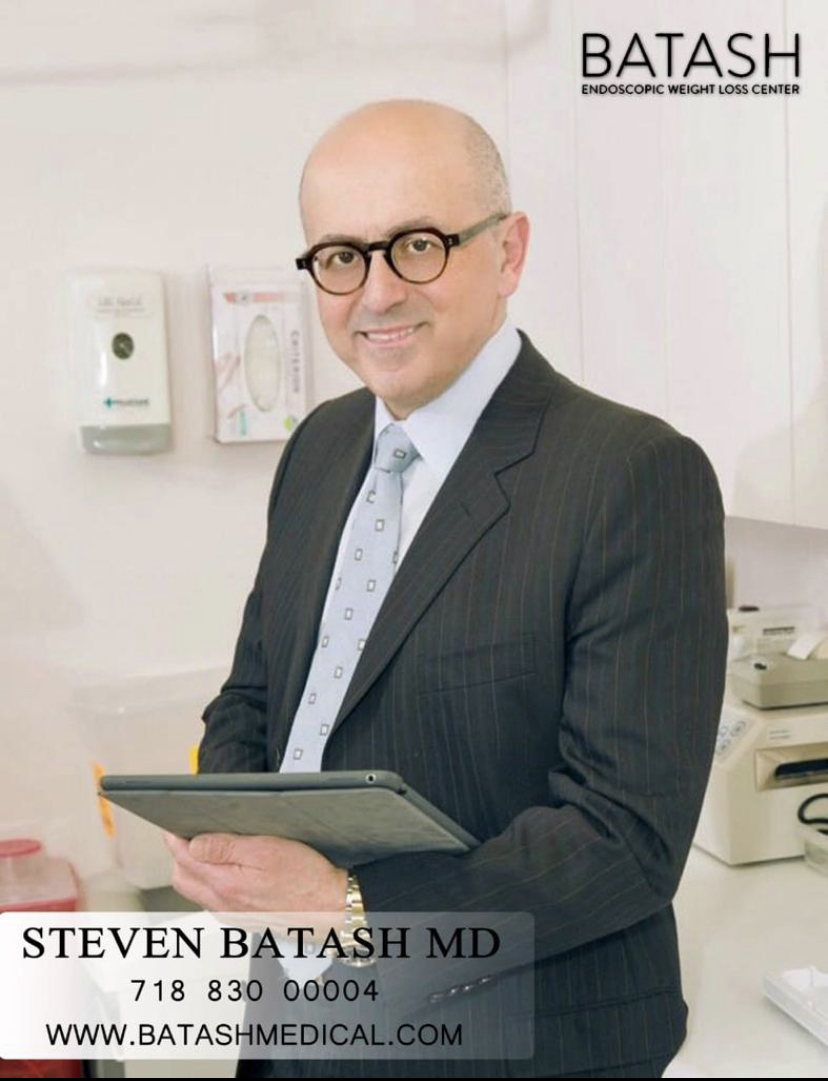Health
Dr. Steven Batash MD offers custom, non-surgical weight loss solutions with rapid results

As one of the world’s leading experts on non-surgical weight loss, Dr. Steven Batash MD believes that shedding unwanted weight is more than just a matter of willpower. Studies show that many efforts to lose weight through diet, restriction, and extreme lifestyle changes will only backfire long term because of their negative mental, emotional and physical effects. When the desired weight-loss is not achieved, oftentimes people blame themselves thinking they cannot simply stick to a diet, when in reality our bodies have a natural inclination to return to their pre-weight-loss set-point. Over time this wreaks havoc on the body, lowering metabolism and increasing appetite. In the end, willpower is a short-term fix for a long-term goal. Dr. Batash’s custom, non-surgical methods for weight-loss are different – they are proven to deliver custom, lasting results that have helped thousands of patients all around the world achieve long-term weight loss, safely and effectively.
Dr. Batash completed his undergraduate at Columbia University and received his medical degree from NYU School of Medicine. He has been practicing medicine in New York City for over 30 years and is among the world’s leading experts in non-surgical weight loss solutions as a board-certified gastroenterologist. Dr. Batash is currently affiliated with the NYU Langone Medical Center, Lenox Hill Hospital, and New York-Presbyterian Hospital. Currently, Batash Medical Weight Loss Centre has two locations in New York. Batash Medical is dedicated to offering patients customized, personal plans for simple and sustained weight loss. Procedures such as Suture Sculpt and Orbera Balloon along with OnTrack Coaching give patients peace of mind knowing they are taken care of every step of the way.
Suture Sculpt endoscopic sleeve gastroplasty is a non-surgical, minimally invasive outpatient procedure that reduces the amount of food the stomach can hold and modifies the signals sent between the stomach and the brain. A suturing device is inserted endoscopically to reduce the functional volume of the stomach by up to 60% thus giving a sense of fullness when the patient eats smaller portions. Suture Sculpt differs from bariatric surgery in that recovery time is reduced – patients are discharged within a few hours and can return to work within one to two days, though individual recovery times may vary. There are no physical activity restrictions and patients report little to no pain following this procedure.
The Orbera Balloon procedure requires only mild sedation and is performed by placing a soft, deflated silicone balloon endoscopically into the stomach. After the balloon is in place, a syringe is then used to fill the balloon with a sterile saline solution until it becomes the size of a grapefruit. This creates a sense of fullness when patients eat smaller portions by taking up a significant amount of space in the stomach. After 6 months, the balloon is deflated and removed, similar to the placement process. Recovery time is very quick as patients are discharged within a few hours and most can return to work the next day.
Studies show that endoscopic weight loss procedures yield the best results when paired with proper nutrition and exercise. Because of this, Batash Medical offers before, during, and after-care which includes free lifelong OnTrack coaching. OnTrack is a program aimed to maximize the patient’s weight loss success through personalized nutritional counseling and lifestyle coaching.
Batash Medical also offers other services such as Endoscopy, Colonoscopy, and Capsule Endoscopy.
To learn more about the Batash Endoscopic Weight Loss Centre, or if you have questions about their services, please visit www.batashmedical.com.
Health
Addressing Common Myths About Vitamins and Supplements by Amanda Tirado

The wellness industry is filled with advice about vitamins and supplements, but not all of it is accurate. Many people rely on supplements for better health, but misunderstandings about how they work can lead to wasted money or even potential harm. Amanda Lorena Tirado, founder of Xmy, is passionate about educating people on making smarter supplement choices. Her company focuses on high-quality, effective products while also giving back to the community through charitable initiatives. Let’s break down some of the most common myths about vitamins and supplements so you can make informed decisions.
One of the biggest myths is that all supplements work the same way, regardless of how they are taken. Many don’t realize that traditional pills and capsules have to pass through the digestive system, where stomach acid and enzymes break them down. This can significantly reduce the amount of nutrients your body actually absorbs.
In contrast, oral strips and liquid supplements enter the bloodstream more quickly, making them more effective. For example, vitamin B12 is often poorly absorbed in pill form but is much more bioavailable in liquid or sublingual forms. Choosing the right delivery method is just as important as picking the right supplement.
Another misconception is that supplements can replace a healthy diet. Many people assume taking a daily multivitamin covers all their nutritional needs, but that’s not how the body works. Supplements are designed to support a good diet, not replace it. Whole foods provide more than just vitamins, they contain fiber, antioxidants, and other compounds that work together to benefit your health.
For example, an orange does not just offer vitamin C. It also provides fiber, flavonoids, and other nutrients that enhance absorption and support overall health. Research has shown that people who get their nutrients from food rather than supplements tend to have better long-term health outcomes. So while supplements can help fill gaps in your diet, they should not be your primary source of nutrients.
Many people also assume that if a supplement is labeled as “natural,” it must be better and safer. But that’s not necessarily true. The term “natural” is often used as a marketing tool rather than an indicator of quality or safety.
Some natural ingredients can be harmful, especially in high doses or when mixed with certain medications. On the flip side, some synthetic nutrients are actually more stable and easier for the body to absorb. The key is to choose well-researched, high-quality supplements from reputable brands rather than relying on misleading labels.
Another dangerous myth is that taking more vitamins means better health. Some believe that if a little is good, a lot must be even better, but that’s not always the case.
Certain vitamins, especially fat-soluble ones like A, D, E, and K, can build up in the body and become toxic if taken in excessive amounts. Too much vitamin A, for example, can lead to liver damage, while excessive vitamin D can cause kidney problems. Even water-soluble vitamins like B-complex and C can cause side effects in very high doses, such as nerve issues or stomach discomfort. Moderation is key when it comes to supplementation.
At Xmy, the focus is not just on convenience, it’s about real impact. The company is committed to producing supplements that prioritize effectiveness and bioavailability. But their mission goes beyond selling products.
Misinformation about supplements is everywhere, but being informed is the best way to make smarter health choices. The way a supplement is absorbed matters as much as what’s in it. A balanced diet is still the foundation of good health, and more vitamins don’t always mean better results.
Xmy is changing the way people think about supplements. Amanda and her team believe that good health is not just about what you take, it’s about making informed choices and supporting brands that genuinely care. Choosing the right supplements means choosing a brand that stands for something bigger. With Xmy, you are not just improving your health, you are supporting a company that is making a real difference.
-

 Tech5 years ago
Tech5 years agoEffuel Reviews (2021) – Effuel ECO OBD2 Saves Fuel, and Reduce Gas Cost? Effuel Customer Reviews
-

 Tech6 years ago
Tech6 years agoBosch Power Tools India Launches ‘Cordless Matlab Bosch’ Campaign to Demonstrate the Power of Cordless
-

 Lifestyle6 years ago
Lifestyle6 years agoCatholic Cases App brings Church’s Moral Teachings to Androids and iPhones
-

 Lifestyle5 years ago
Lifestyle5 years agoEast Side Hype x Billionaire Boys Club. Hottest New Streetwear Releases in Utah.
-

 Tech7 years ago
Tech7 years agoCloud Buyers & Investors to Profit in the Future
-

 Lifestyle5 years ago
Lifestyle5 years agoThe Midas of Cosmetic Dermatology: Dr. Simon Ourian
-

 Health7 years ago
Health7 years agoCBDistillery Review: Is it a scam?
-

 Entertainment6 years ago
Entertainment6 years agoAvengers Endgame now Available on 123Movies for Download & Streaming for Free
